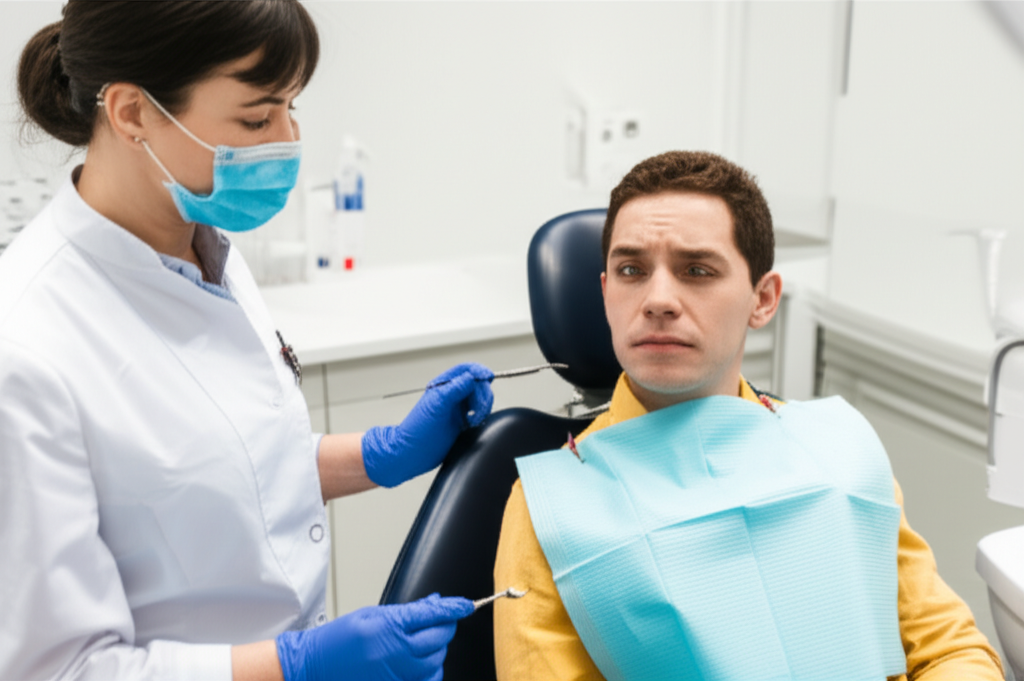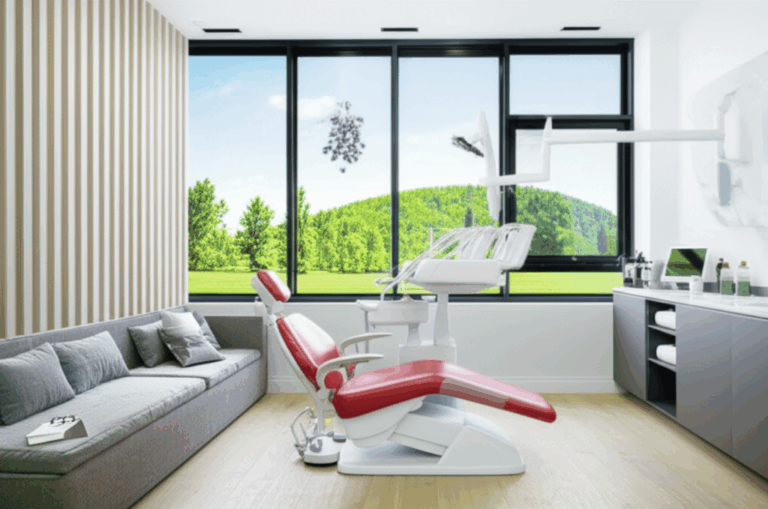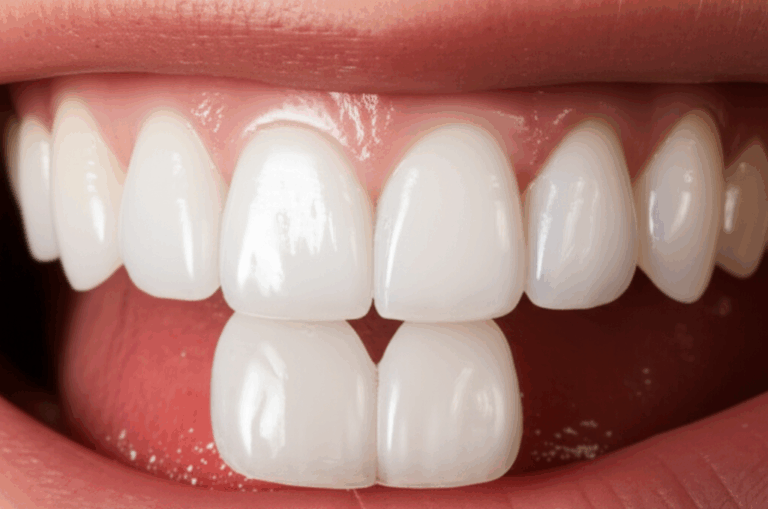
How I Learned to Tell My Dentist I Have Anxiety: Scripts, Tips, and Real-Life Strategies
Getting over being afraid of the dentist isn’t easy—but it really is possible. Here’s my honest, step-by-step guide on how to talk to your dentist, including the actual words I use and what I wish I’d learned sooner.
Table of Contents
- Introduction: Why I Finally Spoke Up About My Anxiety
- Recognizing and Understanding My Dental Anxiety
- Common Signs and Symptoms
- Pinpointing My Biggest Triggers
- What Happens When I Ignore Dental Anxiety
- How I Prepared Before Talking to My Dentist
- Getting Real About My Fears
- Finding an Anxiety-Friendly Dentist
- Best Ways to Start the Conversation
- What I Actually Said: Scripts That Worked for Me
- How I Opened Up
- How I Explained My Specific Worries
- Sharing My Needs (and What Helped Most)
- How My Dentist Helped Me Manage Anxiety
- Communication and Control
- Comfort and Distraction
- Options for Anxiety and Pain Management
- What Helped Me Most During Appointments
- After the Appointment: How I Made Progress and Built Confidence
- Case Studies: Real Lives, Real Relief
- Why Telling My Dentist Is Worth It (Even If It Feels Scary)
- FAQs About Dental Anxiety and Talking to Your Dentist
- Conclusion: You Have More Power Than You Think
Introduction: Why I Finally Spoke Up About My Anxiety
For most of my life, just hearing the word “dentist” made my stomach twist up. I’d find reasons to skip cleanings, move appointments, and not even pick up the phone. Sound familiar? If you’re like me, you know that being scared of the dentist doesn’t care if you’re young or old.
But here’s what I found out after years of not going: telling your dentist you’re nervous changes everything. The first time I opened up, I thought I’d feel embarrassed. Instead, I felt a HUGE sense of relief. My dentist didn’t judge me. He listened. He helped. And I learned I could finally take care of my health.
If you’re reading this, you probably want the same thing: simple steps, real examples, and to know you’re not the only one. Let’s get through this together.
Recognizing and Understanding My Dental Anxiety
Common Signs and Symptoms
My worry wasn’t just “in my head.” Sometimes it felt like a wave of being sick sitting in the waiting room. Other times I’d get really sweaty, my heart would pound, or I’d almost start to panic. Here’s what I noticed (and maybe you will too):
- Physical: Sweaty hands, fast heartbeat, can’t sit still, feeling shaky.
- Emotional: Really dreading the visit, snapping at people, or wanting to cry.
- Behavioral: Making excuses, skipping the dentist, or not being able to sleep the night before.
For a long time, I didn’t realize these all went together. I just told myself, “I’m busy,” but really, I just didn’t want to go.
Pinpointing My Biggest Triggers
Once I owned up to my fear, I started seeing what set me off:
- Bad memories—like a filling that hurt, or feeling ignored when I said something was painful.
- Scared of needles. Seeing the tray or the shot made me freeze up.
- That noise and smell from the drill. My mind kept running old bad memories.
- Worried about being judged for my teeth or for being afraid.
- Feeling stuck when someone’s hands were in my mouth and I couldn’t talk.
Everyone’s got their own “worst part.” Take a minute—what makes it hard for you?
What Happens When I Ignore Dental Anxiety
Here’s the truth. Pretending I wasn’t scared just made things worse. My teeth got lousy. A little sensitive spot turned into a giant cavity. Soon, I needed emergency work—which freaked me out even more. If you’re avoiding the dentist, the stress keeps building up until you have a much bigger (and more expensive) problem.
That pain and worrying made me realize I had to change how I was doing things.
How I Prepared Before Talking to My Dentist
Getting Real About My Fears
The first thing I did was grab a notebook and write down every single thing that made me scared. No judging. No hiding. My list had pain, needles, having to be still, the smell, and even “afraid I’m asking dumb questions.”
It might sound silly, but putting it on paper made it actually feel a little better. I knew what I needed to talk about—not just “I’m scared,” but the real reasons.
Finding an Anxiety-Friendly Dentist
If you already have a dentist, good for you! If you’re looking for a new one, though, look for someone who clearly says they help nervous patients (check their website or reviews). I picked a dentist office that said right there, “we help people with dental anxiety.” That one sentence gave me the nerve to walk in.
I also checked reviews. If other people said the dentist was kind and patient, I felt better about it.
Tip: If you’re going to get stuff like crowns or implants, it helps to pick a dentist who uses a good crown and bridge lab or implant dental laboratory. Better work done on your teeth means fewer do-overs, which means fewer trips back there—that’s way less stress!
Best Ways to Start the Conversation
Waiting to say something until you’re in the chair isn’t always the best. I found it easier to send an email before. I’ve called and just said, “I get really nervous—can I talk to someone first?” Even the folks at the front desk were nice about it. Sometimes, I used the comments spot on the patient forms to write it down.
However you do it, you make your visit more comfortable by letting them know first.
What I Actually Said: Scripts That Worked for Me
When it was finally time to be real and say something, I was scared. The dentist walked in and asked, “How are you today?” I took a deep breath and I said it.
How I Opened Up
Here’s what I actually said, or wish I had:
- “I get pretty nervous about the dentist, so I wanted to tell you before we start.”
- “I’ve had bad stuff happen at the dentist before, and it makes me worry.”
- “I’ll need a little extra help today—is that okay?”
You don’t have to make a big drama out of it. Just saying it out loud helps.
How I Explained My Specific Worries
Being clear helps a bunch. After I started, I could say more:
- “The sound of the drill gets to me. Is there any way to help with that?”
- “Sometimes I gag when tools are in the back—can we slow down or take breaks?”
- “Needles really freak me out. Is there any way to make numbing shots easier?”
Telling your dentist what’s actually scaring you gives them a better idea of how to help.
Sharing My Needs (and What Helped Most)
Even little requests made things better. Here’s what I asked:
- “Could we use a hand sign so I can ask for a break?”
- “Can you tell me what’s happening before you do it?”
- “Is it okay if I listen to music with my headphones?”
- “Can we talk about ways to manage pain—like nitrous or something?”
Almost every dentist was happy to help when I just asked.
How My Dentist Helped Me Manage Anxiety
Once I was honest, my appointments really changed. Here’s what helped me most:
Communication and Control
My dentist gave me a way to “pause” whenever I wanted. We made a hand sign. If I lifted my hand, he stopped right away. No questions or “just a little bit more.” He also told me what was coming next: “You’ll feel some pushing now,” or, “Now I’m rinsing—let me know if you want a break.”
Doing the appointment together made me feel like I was in charge.
Comfort and Distraction
Taking headphones was a huge help. My favorite songs covered up the bad sounds and kept me busy. Some offices have TVs to watch, or soft blankets. One dental helper even gave me a stress ball—it worked better than I thought!
Little things make a big difference. If your body is a little relaxed, your mind can chill out too.
Options for Anxiety and Pain Management
To be honest: the idea of being “put under” scared me. But my dentist explained it all:
- Nitrous oxide (“laughing gas”): I felt floaty and calm, but I was still awake.
- Medicine for anxiety: A pill to take before (I didn’t use it, but being able to ask was nice).
- Numbing gel: This goes on first so I didn’t feel the shot much.
- Breaks: We stopped as much as I needed.
We even tried breathing together. It sounds silly, but counting slow breaths during the hard part made things easier.
And if you’re really struggling, it’s okay to ask about things like therapy. Your dentist has seen this before, and can help find someone.
What Helped Me Most During Appointments
Here’s what I do now, in the chair:
- I told myself, “I can stop if I want.” Just that made me calmer.
- I used the hand sign without feeling bad about it.
- I did slow deep breaths—counting to five in, five out.
- I reminded myself, “My dentist wants to help, not judge me.”
- If something didn’t feel right, or I was worried, I asked questions right then.
Every time I went, it got just a little easier.
After the Appointment: How I Made Progress and Built Confidence
After the appointment, I didn’t rush out (like before). Instead, I talked with my dentist about what went well and what he could do next time to help. We made the next appointment before I left. I gave myself a little reward for going—like a good coffee or a walk after.
Every good visit chipped away at my old fear.
Case Studies: Real Lives, Real Relief
If you think you’re alone, let me tell you what I learned from friends and online groups.
- Maria’s Story: As a kid, a dentist visit freaked her out. She skipped the dentist for years. Finally, she found an office that didn’t rush her and worked out clear “stop” signals. Maria got a root canal and a cleaning without panicking for the first time in years.
- John’s Case: Super scared of needles, so he told his dentist. They used numbing gel, talked him through every step, let him bring a friend, and even tried calming meds. Now, John is way less anxious.
- Sarah’s Approach: She always felt trapped. Her new dentist let her put her hand up any time he needed to stop—no questions. They checked in every few minutes. That was what she needed.
These stories helped me see it’s possible—and gave me ideas for what to say.
Why Telling My Dentist Is Worth It (Even If It Feels Scary)
I won’t lie: the first time I spoke up was HARD. For years, I felt like they’d laugh at me. But real numbers say about 15-20% of grown-ups are scared of the dentist, and most dentists know about this. Telling them lets your whole team help you—and trips get SO much easier.
If you put if off, things just get worse (and more expensive). Facing this now means saving yourself more trouble later.
Did my dentist EVER make me feel dumb for being scared? Not once.
FAQs About Dental Anxiety and Talking to Your Dentist
Is dental anxiety really that common?
Yep. About 20% of adults skip or put off the dentist because of fear.
What if my dentist doesn’t care at all?
Change dentists. Lots of them welcome nervous people. Don’t settle for someone who doesn’t help.
Can I bring a friend or family member?
Ask! Most dentists are cool with this, and it can really help you feel safe.
Are there dentists who work just with nervous patients?
Yes. Look for dentists who say they help with anxiety or deal with “sedation dentistry.”
Will my insurance cover sedation or relaxing stuff?
Not always. Check your own plan about things like implant insurance and ask your dentist’s office.
Conclusion: You Have More Power Than You Think
If you made it this far, give yourself credit. Dental anxiety is normal—and not something to hide. Telling your dentist is the best thing I did to turn panic into “just another appointment.”
My teeth are healthier, my bills are smaller, and I don’t lose sleep over dental checkups. You can get here too. Start small: write down your fears, look for a dentist who cares, and practice your first words if you need. You’ll be glad you did.
And if you want to know about good dental work that helps cut down visits and stress, check out a trusted china dental lab or look into how a top digital dental lab can make it all easier—less time in the chair means less worry.
You’re tougher than you think. Here’s to smiling without fear—one honest step at a time.








